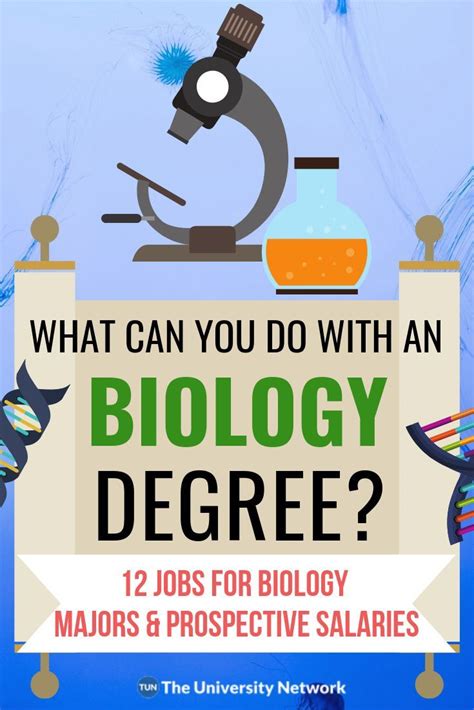Introduction

The field of biology is vast and multifaceted, offering a wide range of career opportunities for individuals with a Bachelor of Science (BS) degree in Biology. From research and development to healthcare, education, and environmental conservation, there is no shortage of potential career paths for graduates with a strong foundation in biology.
Career Paths in Biological Research
Biomedical Research:
- Develop and test new treatments for diseases
- Study the genetic basis of diseases
- Conduct clinical trials to evaluate the safety and effectiveness of new drugs
Biotechnology and Pharmaceutical Research:
- Engineer and produce biological products, such as antibodies and vaccines
- Discover and develop new therapeutic targets
- Advance the understanding of disease mechanisms
Environmental Biology and Conservation:
- Study the impacts of human activities on ecosystems
- Develop strategies for protecting endangered species and habitats
- Educate the public about environmental issues
Forensic Biology:
- Analyze DNA evidence in criminal cases
- Identify human remains
- Develop new forensic techniques
Education and Outreach
Biology Teacher:
- Teach biology at the high school or college level
- Prepare students for careers in science and medicine
- Foster an appreciation for the natural world
Science Writer and Communicator:
- Translate scientific research into accessible language for the general public
- Write articles, books, and other materials about biology
- Engage audiences and raise awareness about scientific issues
Healthcare
Medical Laboratory Technician:
- Perform laboratory tests and analyze samples
- Diagnose and monitor diseases
- Provide technical support to healthcare professionals
Clinical Research Coordinator:
- Manage clinical trials and ensure compliance with regulations
- Recruit and track patients
- Oversee data collection and analysis
Environmental Health Specialist:
- Assess and mitigate environmental hazards
- Develop and implement programs to protect public health
- Monitor air, water, and soil quality
Job Outlook and Salary Expectations
According to the U.S. Bureau of Labor Statistics, the median annual salary for biological scientists was $82,260 in May 2021. The job outlook for biological scientists is expected to grow 5% from 2021 to 2031, faster than the average for all occupations.
Skills and Qualifications for Biology BS Graduates
- Strong understanding of biological principles
- Proficiency in laboratory techniques
- Data analysis and interpretation skills
- Critical thinking and problem-solving abilities
- Communication and presentation skills
New Applications of Biological Sciences
Emerging fields in biology are driving the development of innovative applications, such as:
- Synthetic Biology: Engineering new biological systems or modifying existing ones
- Personalized Medicine: Tailoring medical treatments based on individual genetic profiles
- Biomaterials: Developing materials inspired by biological structures for applications in medicine and engineering
Table 1: Key Industries for Biology BS Graduates
| Industry | Job Title | Examples |
|---|---|---|
| Healthcare | Medical Laboratory Technician | Clinical Research Coordinator |
| Research and Development | Biomedical Researcher | Biotechnology Scientist |
| Education | Biology Teacher | Science Writer |
| Environmental Conservation | Environmental Biologist | Conservation Scientist |
Table 2: Median Annual Salaries for Biological Scientists
| Job Title | Median Salary |
|---|---|
| Biological Scientist | $82,260 |
| Medical Laboratory Technician | $56,880 |
| Clinical Research Coordinator | $75,170 |
| Environmental Health Specialist | $75,680 |
Table 3: Educational Requirements for Biology BS Graduates
| Career Path | Education Level |
|---|---|
| Researcher | Master’s or Doctoral Degree |
| Teacher | Master’s Degree |
| Medical Laboratory Technician | Bachelor’s Degree |
| Clinical Research Coordinator | Bachelor’s or Master’s Degree |
Table 4: Tips for Enhancing Employability
| Tip | Description |
|---|---|
| Pursue internships and research experience | Gain practical skills and make connections |
| Develop strong communication and presentation skills | Effectively convey your knowledge and ideas |
| Network with professionals in the field | Attend conferences, join organizations, and build relationships |
| Stay updated on the latest research and technologies | Continue your education and expand your expertise |
Conclusion
The field of biology offers a multitude of career opportunities for individuals with a BS degree in Biology. By acquiring a strong foundation in biological principles and developing relevant skills, graduates can pursue careers that make a difference in various fields, from healthcare and research to education and environmental conservation. With an estimated median salary of $82,260 and a promising job outlook, a BS degree in Biology remains a valuable investment for those seeking a fulfilling career in the life sciences.
